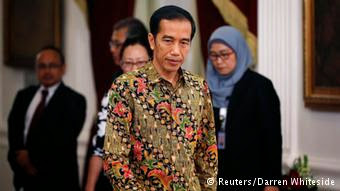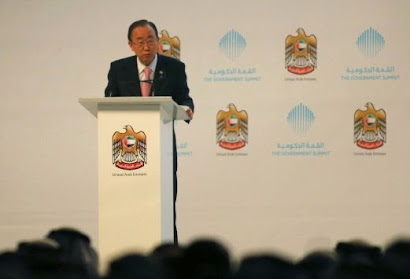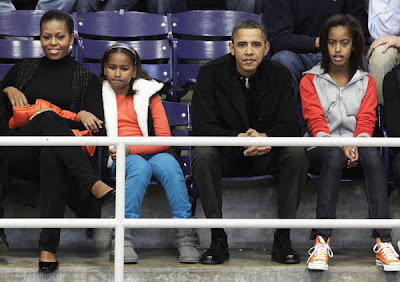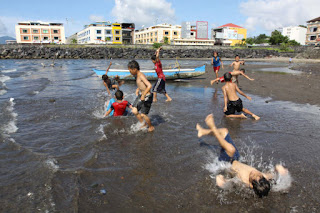News and information about Culture and Tourism in Indonesia (Asean & Asia)
"The State of the Earth" - The Predicted Weather Shift (Mini Ice Age - 2032 !!)
Indonesia executes six drug convicts, five of them foreigners
- Related Articles ...
- Australian gran escapes death in Malaysia drugs case
- Indonesia Rejects UN Recommendation to Abolish Death Penalty
- Iran parliament softens drug death penalty laws
- Philippine Church in 'show of force' against drug killings
- Duterte executions plan is barbaric: Philippine critics
- Philippines' Duterte calls Obama 'son of a whore'
- Minister: Indonesia Putting Executions on Hold to Focus on Economy
- Indonesia, Netherlands Organize Harm Reduction Talks at UNODC
- Narcotics Agency: Drugs Kill 33 Indonesians Daily, Not 40-50
- Curb Your Enthusiasm for Firing Squads: Indonesian Ex-Foreign Minister
- Widodo Promises to Act on Police Chief Spat as Popularity Hit
- 100 days in power - Has Indonesia's Jokowi shaken things up?
Ban appeals to Indonesia to stop death row executions
Pope: 'Death penalty represents failure' – no 'humane' way to kill a person
- More Articles ...
- Brunei says death penalty moratorium to cover sharia laws
- Death penalty 'inadmissible' in Catholic teaching update
- Philippine Church in 'show of force' against drug killings
- Vatican to open its doors to 1,000 prisoners
- Pope Francis Says He'd Love to Visit Indonesia
- Pope Francis visits correctional facility
- Pope calls for global abolition of death penalty
- Pope meets relatives of Pakistani Christian on death row
- Pope hails Iran accord, urges end to 'absurd violence' in Easter message
- Pope: 'Death penalty represents failure' – no 'humane' way to kill a person
- More Articles (Death Penalty - Indonesia} ....
- Indonesian court sentences French drug smuggler to death
- Rights Group Urges Govt to Include Death Penalty Moratorium in Law Reform Package
- Indonesia executes foreign convicts despite protests
- Minister: Indonesia Putting Executions on Hold to Focus on Economy
- Eight Convicts Executed Despite World Leaders’ Appeal
- Indonesia Regrets Beheading of Another Domestic Worker in Saudi Arabia
- Minister to Investigate Age of Death Row Convict Whom Activists Say Is Juvenile
- Ban appeals to Indonesia to stop death row executions
- Garuda Says Its Planes Will Not Transfer Bali Nine Duo to Place of Execution
- Statement by the Chan and Sukumaran Families
- Dutch Ambassador Back in Indonesia After Recall Over Death Penalty
- Why didn't Indonesia's Jokowi stop the execution of drug traffickers?
- Foreign Ministry: Netherlands, Brazil Ties Not Harmed, Oz Efforts ‘Respected’
- Nigeria Summons Indonesian Ambassador Over Executions
- Australia Pursues Plea to Spare Drug Smugglers on Indonesia’s Death Row
- Amid Execution Outcry, AG Says Respect Indonesia’s Laws
- Brazil and Netherlands recall Indonesia ambassadors over drug executions
- Indonesia executes six drug convicts, five of them foreigners
- Last ditch efforts to stop Indonesia executing Utrecht man
- More Articles (Death Penalty - Asia/Middle East) ....
- Brunei says death penalty moratorium to cover sharia laws
- Errors found in Hebei murder case 20 years after execution
- Vietnamese Drug Convict Awaiting Execution Expresses One Final Wish
- China plans to scrap death penalty for 9 crimes: Xinhua
- Blood Money Finalized for Indonesian Migrant Worker Facing Death in Saudi Arabia
- SBY Meets With Families of Migrant Workers Facing Death Sentences Overseas
- Saudi Arabia Beheads Indonesian Woman Convicted of Murder
- Govt intensifying efforts to protect migrant workers
Obama becomes first president to visit US prison (US Justice Systems / Human Rights)
US Death Penalty (Justice Systems / Human Rights)
- Innocent New Yorker gets $6.25 mn for 25 years in jail
- After 43 years in isolation, US man Albert Woodfox to be freed
- Former death row inmate and brother pardoned in 1983 rape-murder of girl
- Flawed FBI forensic testimony comes back to haunt US criminal justice system
- US man exonerated after 30 years on death row
- Woman who spent 23 years on US death row cleared
- Man freed 39 years after death sentence is awarded $1m in compensation
- More Articles (Death Penalty - US) ....
- Connecticut's top court rules death penalty unconstitutional
- US cinema shooter escapes death penalty
- US Stays Out of Row on Indonesian Executions
- Obama Commutes Sentences of 22 Drug Offenders
- Family of Ohio man who snorted and gasped during execution drops lawsuit
- Ohio death penalty anonymity law is unconstitutional, inmates say
- US executes man despite disability claim
- Botched Arizona execution takes almost two hours
- US federal judge rules California death penalty unconstitutional
- Botched execution 'deeply troubling', says Barack Obama
"#Happiness is our people's right. We shouldn't be too hard on behaviors caused by joy." 29/6/2013
— Hassan Rouhani (@HassanRouhani) May 21, 2014Thousands of people are already dancing for a #HappyPlanet! Join in at http://t.co/OfXTxf1A8q #happyday pic.twitter.com/XF02VkW2B7
— Google (@google) 19 maart 2015New (Energy) Pope
- More Articles .....
- Bishops urge Pope to open priesthood to married men in Amazon
- Pope blames Amazon fires on destructive 'interests'
- Pope signs Jerusalem declaration on Morocco trip
- With too few priests, Portuguese women step up
- Pope makes historic visit to Rome Anglican church
- Catholics and Lutherans sign joint declaration 'accepting common path'
- Pope Francis Says He'd Love to Visit Indonesia
- Pope, patriarch urge Christian unity at historic talks
- Pope and Russian patriarch to meet for the first time
- Obama decries anti-Muslim rhetoric on first mosque visit
- Pope hails ties with Jews on landmark synagogue visit
- Pope Francis seeks Bolivians' forgiveness for colonial-era crimes
- Pope Francis calls for peace, end to slavery in 2015
- Syncretist Celebrations of Imlek, Lent and Tolerance
- Jokowi Condemns Paris Attacks, Calls for Respectful Creative Expression
.
“… The Shift in Human Nature
You're starting to see integrity change. Awareness recalibrates integrity, and the Human Being who would sit there and take advantage of another Human Being in an old energy would never do it in a new energy. The reason? It will become intuitive, so this is a shift in Human Nature as well, for in the past you have assumed that people take advantage of people first and integrity comes later. That's just ordinary Human nature.
In the past, Human nature expressed within governments worked like this: If you were stronger than the other one, you simply conquered them. If you were strong, it was an invitation to conquer. If you were weak, it was an invitation to be conquered. No one even thought about it. It was the way of things. The bigger you could have your armies, the better they would do when you sent them out to conquer. That's not how you think today. Did you notice?
Any country that thinks this way today will not survive, for humanity has discovered that the world goes far better by putting things together instead of tearing them apart. The new energy puts the weak and strong together in ways that make sense and that have integrity. Take a look at what happened to some of the businesses in this great land (USA). Up to 30 years ago, when you started realizing some of them didn't have integrity, you eliminated them. What happened to the tobacco companies when you realized they were knowingly addicting your children? Today, they still sell their products to less-aware countries, but that will also change.
What did you do a few years ago when you realized that your bankers were actually selling you homes that they knew you couldn't pay for later? They were walking away, smiling greedily, not thinking about the heartbreak that was to follow when a life's dream would be lost. Dear American, you are in a recession. However, this is like when you prune a tree and cut back the branches. When the tree grows back, you've got control and the branches will grow bigger and stronger than they were before, without the greed factor. Then, if you don't like the way it grows back, you'll prune it again! I tell you this because awareness is now in control of big money. It's right before your eyes, what you're doing. But fear often rules. …”
- More Article ...
- Basuki to Fire Officials Who Fail to Submit Wealth Reports
- Govt to Enact Regulation Requiring All Public Officials to Disclose Wealth
- Critics Lash Out at Call for Immunity for KPK Leaders
- KPK Seizes Homes, Cars and Cash From E. Java Politician
- KPK to Give New Ministers Transparency Training
- KPK Said to Vet Jokowi’s Ministers
Tuesday, November 30, 2010
Habibie Award goes to researcher, scholar and interfaith activists
Indonesian hajj pilgrims to wear batik clothes next year
National camp
Monday, November 29, 2010
U.S. President Obama watches basketball game with families after injured
The evidence says Muhammad existed
 |
| (photo: flickr/Zoe52) |
Some sceptical scholars claim that Muhammad did not exist and that Islam is a fabrication made up in later centuries. But Leiden University’s Petra Sijpesteijn has demonstrated from her work on Arabic papyrus manuscripts that their claim is not true.
Related Articles:
"The End of History" – Nov 20, 2010 (Kryon channeled by Lee Carroll) - (Subjects: Abraham, Isaac, Ishmael, Muhammad, Jesus, God, Jews, Arabs, EU, US, Israel, Iran, Russia, Africa, South America, Global Unity,..... etc.) - New
Sunday, November 28, 2010
Soeharto’s politics during the Japanese occupation
Saturday, November 27, 2010
Muslims working in churches? No problem

The Mahanaim Church and Al-Muqarrabien Mosque share more than just a wall.
(Photo courtesy of Asia Calling)
Related Articles:
Friday, November 26, 2010
Internet fever
Obama pardons Thanksgiving Turkey Apple

The National Thanksgiving Turkey, named Apple, waits
to be pardoned by U.S. President Barack Obama in the
Rose Garden of the White House in Washington D.C., capital
of the United States, Nov. 24, 2010. (Xinhua/Zhang Jun)
Rethinking Indonesian Women’s Rights in Religion
 |
| Activists rallying in Central Jakarta on the International Day for the Elimination of Violence Against Women on Thursday. (JG Photo/Safir Makki) |

emerged from her struggle with her faith to adopt a more liberal interpretation of
Islam that allows her American identity and religious tradition to co-exist.
 |
| Dutch Turkish woman Semra Çelebi no longer wears her headscarf (Photo: RNW) |
Thursday, November 25, 2010
Former Sex Slaves Call on Japan for Full Apology
Tokyo. Six former Korean wartime sex slaves and more than 200 supporters gathered on Thursday in Tokyo to call on Japan for a full official apology and compensation in a petition to Prime Minister Naoto Kan.

Aging Filipino women who claim to be former wartime Japanese sex blow whistles in front of the Japanese Embassy in Manila, Philippines on Wednesday. The group demands from the Japanese government an apology and the redress of the crimes committed against Filipino women during World War II. (AP/Aaron Favila)
Manado Lights the Way for Diversity
In Sliver of Indonesia, Public Embrace of Judaism
Business and pleasure: Children frolic on the beach in Manado, North Sulawesi, on Sunday. The beach is made of land reclaimed by the local government to give more space to businesses and ports. (JP / Antara/Basrul Haq)
Wednesday, November 24, 2010
Indonesian Cleric Gets 4 Years Jail Over Sex With Child Bride
 |
| Pujiono Cahyo Widiyanto, center in white, a wealthy Muslim cleric was sentenced to four years in prison on Wednesday for having sex with a 12-year-old girl he took as his unofficial wife. (AFP Photo) |

Father John M. Fiala, arrested in area sex case
Interfaith Food Fight Brings Lombok’s Muslims and Hindus Closer Together
 |
| Muslims and Hindus carry offerings for the ‘Ketupat War’ at the Lingsar temple complex in Lombok. The participants fling rice sanctified with holy water at one another. (JG Photo/Fitri R.) |

ANOTHER DAY PASSES: Muslims from a variety of backgrounds enjoy fast-breaking meals prepared by the Indonesian-Chinese Muslim community and local residents at the Cheng Ho Mosque in Surabaya, East Java. (JP/ID Nugroho)












